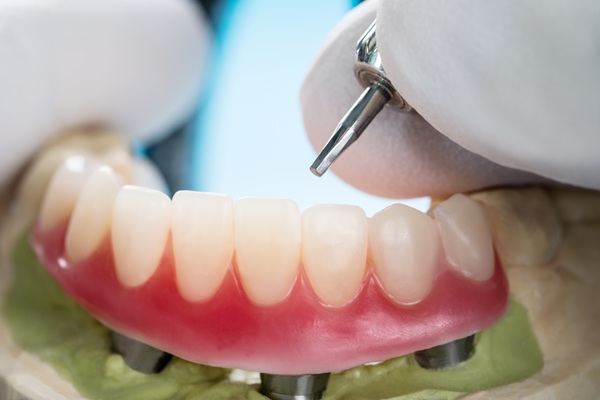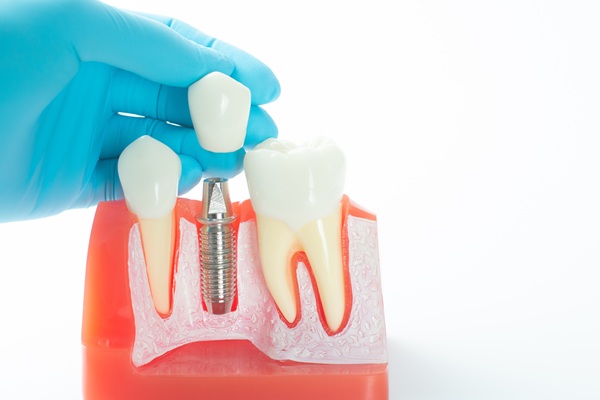Reasons for a Bone Graft Procedure for Dental Implants

If you’ve suffered the loss of many of your teeth, then you might be considering dental implants, but it’s important to think about the fact that a bone graft may be necessary to get the implants you want and deserve. Dental implants represent a permanent solution to traumatic tooth loss and are a great way for most people to restore their smiles. Before you commit to dental implants, it’s important to know what is involved and what to prepare yourself for so that you are certain it is the right solution for you. Your dentist will be able to go over all the steps of the process for you and what you may need to prepare for so that you’re ready for the procedure.
In this post, we will look at how dental implants work, what they are exactly, and why you may need a bone graft to get your implants installed.
How dental implants work
A dental implant is essentially a prosthetic tooth that is designed to permanently replace a missing natural tooth. A person can have as few as a single dental implant up to an entire mouth full of implants to restore an entire smile.
Depending on each unique situation, the purpose of the implants can differ as well. Replacing a single missing tooth is a great way to get your smile back after an accident. If you’re missing just a few teeth, then implants might be used to secure other dental applications like bridges or crowns. Dental implants can also just function as replacements for entire arches of teeth for the top and bottom. No matter your situation, there is generally a solution that involves implants.
What is the implant exactly?
Knowing how dental implants can be used is important, but so is knowing exactly what they are and how they are attached to your mouth.
A dental implant consists of two separate components, the anchor or post and the prosthetic tooth.
The post is most often made of dental-grade titanium and is grafted into the jawbone for stability. Depending on the shape and strength of your jawbone and the number of implants you need to receive, the dentist may recommend grafting as part of the implant process to ensure that there is enough bone available to properly secure all of the implants.
The post is able to permanently bond the implant to your mouth, meaning you’ll never have to worry about it falling out or replacing it so long as you practice good oral hygiene and get regular checkups from your dentist.
The second part of the implant, the prosthetic tooth, is a tooth-shaped cap that goes over the post and is made to resemble natural teeth as closely as possible. The cap is typically made of hardened porcelain and is shaped and colored to resemble your natural teeth as closely as possible. The porcelain is made to be stronger than natural teeth so that cracking or chipping is much less of a concern.
Why you might need a bone graft
As we discussed, dental implants have to be anchored into the jawbone to be stable. Patients may not have enough jawbone to support their implants in many cases. Grafting new bone into the jaw is a way to give a patient the ability to support implants. The grafting process is a way to take bone from elsewhere in the body and reinforce the jawbone to make it wider and thicker.
The process of bonding the implant to the jawbone is called osseointegration and is the key to the successful installation of dental implants. There are a number of factors that determine whether more bone is needed to install implants.
The most important factor in whether grafting is necessary is the overall shape of the jawbone and the bone density. This can be affected by diet and other factors, but age is also a major contributor to lower bone density. This means that older patients are more likely to need a graft done.
The number of implants you need is another factor to consider. A single implant may not require grafting where multiple implants or an entire mouth of new teeth likely will.
Talk with your dentist about implants
Tooth loss can have significant impacts on your overall health. It's likely that you're searching for a solution. If you’re considering dental implants to solve your tooth loss, the first step is to consult with your dentist about what may be needed, including the shape of your jawbone and whether or not you will need a bone graft.
Request an appointment here: https://corderoperiodontics.com or call Rafael E. Cordero, DDS PA at (561) 763-9221 for an appointment in our Palm Beach Gardens office.
Check out what others are saying about our dental services on Yelp: Will I Need a Bone Graft for Dental Implants in Palm Beach Gardens, FL.
Recent Posts
The jawbone is the part of the face that holds many essential elements together, such as the teeth, ligaments, and muscles; however, bone grafting may sometimes be necessary if the jawbone is too weak to perform these tasks. A person’s jawbone can deteriorate over time, whether due to age, genetics, poor oral health, cancer, or…
When a tooth is lost, bone resorption occurs, necessitating a chin graft procedure from the surgeon. For many individuals, losing a tooth may not seem like a huge concern at first, particularly if the tooth is not in the front row. But even if the lost tooth does not affect the smile's appearance, there are…
Looking for quality information on bone grafting? If you are in need of one or more dental treatments that can improve the overall health of your mouth but have been informed that you do not have enough jawbone to support the treatments, then bone grafting is often recommended. While most dental patients will qualify to…
Dentists sometimes perform bone grafting surgery as the first step of a treatment plan to install dental implants. They may also perform the procedure as a way to correct bone loss caused by periodontal disease. In the case of dental implant treatments, grafting may be necessary for a patient who lacks the bone mass or…


